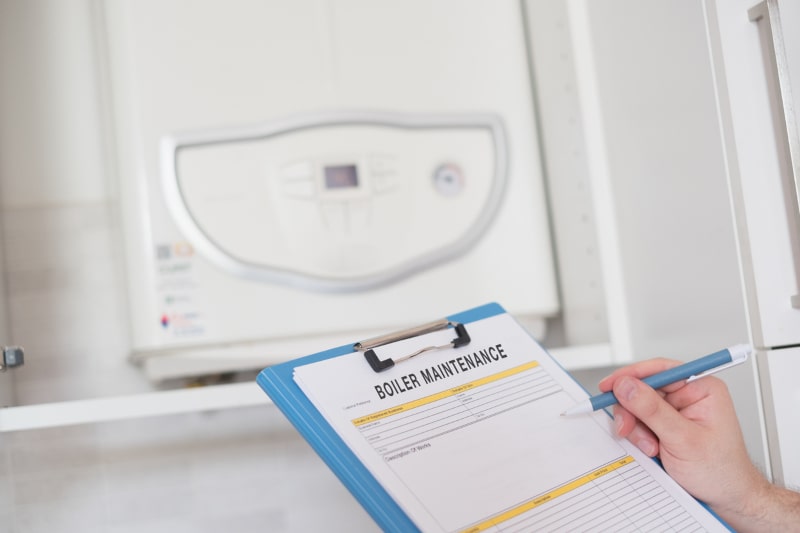Your boiler is one of the most critical tools at your disposal for staying warm during a Dover, DE winter. It’s important to do everything you can to keep your boiler functioning at the highest level it can reach for as long as possible. Here are a few useful tips that will allow you to extend your boiler’s lifespan.
Schedule Maintenance Every Year
Most people only go through the act of requesting service on their boilers when something is clearly wrong with them. Unfortunately, not all problems are obvious, and professional maintenance work can detect and fix problems in their early stages or prevent them altogether. Therefore, if you want to push your boiler towards the end of its average 20-year lifespan or even beyond it, annual maintenance is essential.
Install a Magnetic Filter
Over time, as your boiler ages and goes through repeated and continuous use, sludge will accumulate inside it. This sludge consists mostly of rust from the insides of your boiler’s pipes and radiators. This rusty sludge will build up and hinder water flow through your boiler, inhibiting the unit’s overall functioning and damaging its parts unless you install a magnetic filter.
A magnetic filter is a special component that you place on the return pipework of your heating system so that it sits as close to your boiler as possible. The filter is mostly plastic but has a powerful magnet that will grab and pull away any accumulating rusty sludge.
As a result, the sludge gathers on the filter and never reaches the boiler in the first place. After a while, a qualified heating technician can detach the filter and clean away the sludge for you. This can greatly prolong your boiler’s shelf life.
Add Some Inhibitor
Inhibitor is a chemical liquid that can prevent limescale buildup and rust in central heating systems. It also applies a protective coat to the metal inside your radiator and your boiler’s pipes, greatly slowing down the rate at which the metal in these things corrodes.
There are a few different ways to apply inhibitor, from directly pouring it into your radiator to using pumps to push it through a pressurized system. However, since this can get complicated and inhibitor is caustic and dangerous to handle, we recommend asking a professional to apply it for you. You can use inhibitor as an anti-sludge supplement to your boiler’s magnetic filter.
Powerflushing
If you’ve already installed magnetic filters or applied some inhibitor, it won’t be necessary to powerflush your boiler, but if your boiler is older and you haven’t done these things, powerflushing can be an excellent way to remove accumulated sludge. If you notice cold spots on your radiators, it’s probably time for a powerflush.
To powerflush your boiler, connect it to a powerflushing machine. This machine will fire high-pressure jets of water and cleaning agents at the parts of your radiators with the most sludge. This should forcibly remove the sludge.
Bleed Your Radiators
Sometimes, air bubbles will find their way into your radiators. Many boilers have an automatic air vent whose purpose is to expel such air and relieve any pressure that it causes, but occasionally, this tool fails. The telltale sign that you have air trapped in your radiator is if the radiator is hot on the bottom but colder at the top.
Taking care of this problem requires you to bleed your radiators. To do this, get a radiator key, use it to open the bleed point at the top of the radiator, and just let the air flow out.
To ensure that your boiler works well and keeps your home in Dover, DE, warm for years to come, you just need to take a few commonsensical steps. For help, call Griffith Energy Services and schedule boiler services today.
Image provided by iStock




